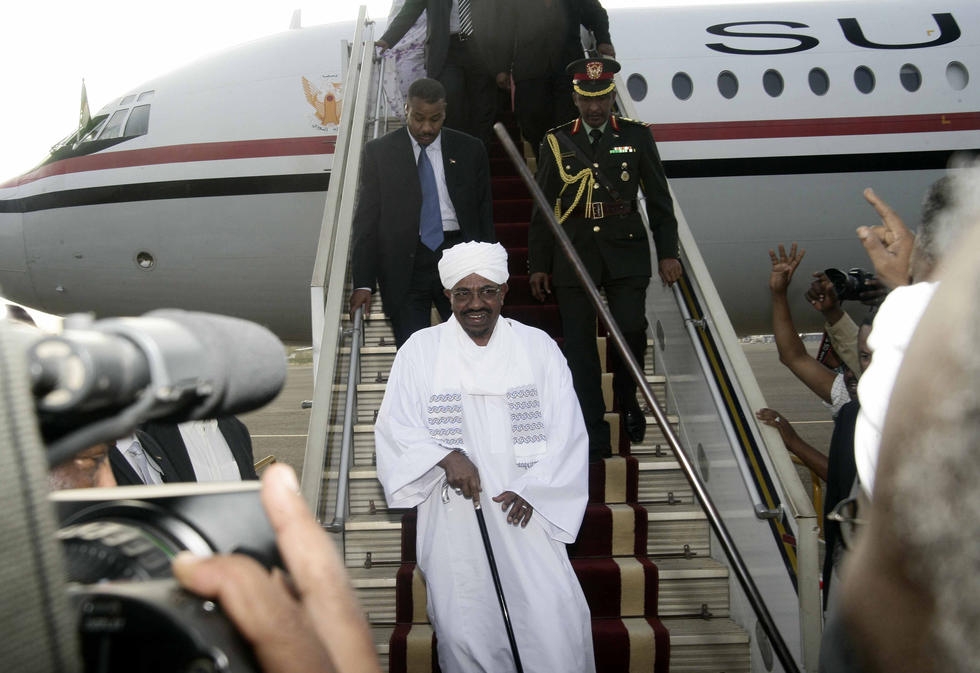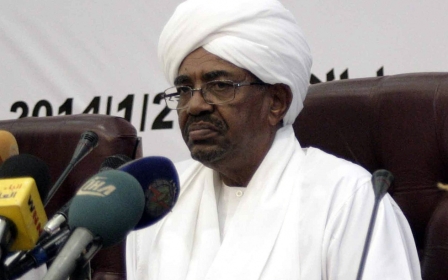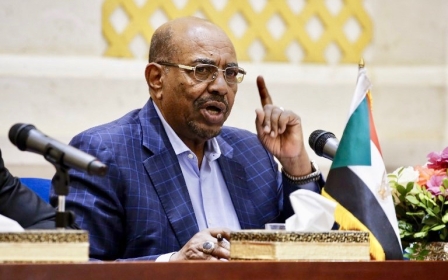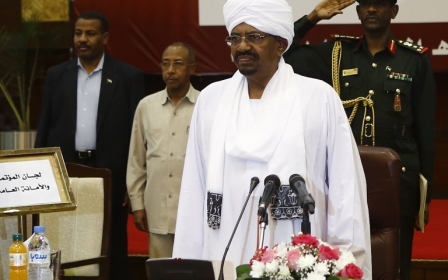Sudan's leader Bashir, wanted by ICC, arrives in Morocco on visit

Sudanese President Omar al-Bashir, wanted on genocide charges by the International Criminal Court (ICC), arrived in Morocco late on Thursday for a "private" visit.
Bashir arrived at Tangiers airport, accompanied by ministers and other senior Sudanese officials, according to the Le360 news site, considered close to circles in Morocco's royal court.
The trip, announced a week ago in Sudanese outlets, has angered human rights defenders in Morocco, who called on their government to scrap the visit.
Morocco, which is not one of the 124 signatories of the Rome Statute that established the ICC, has hosted Bashir before this latest trip.
Bashir is wanted by the ICC - which is housed in the Hague, Netherlands - for genocide, war crimes and crimes against humanity, charges he steadfastly denies.
Sudan's deadly conflict broke out in 2003 when ethnic minority groups took up arms against Bashir's Arab-dominated government, which launched a brutal counter-insurgency.
The UN Security Council asked the ICC in 2005 to investigate the crimes in Darfur, where at least 300,000 people have been killed and 2.5 million displaced, according to UN figures.
Despite the ICC's pursuit of the Sudanese president, Bashir continues to travel to various countries with impunity.
War crimes judges ruled last month that South Africa had failed to uphold ICC regulations in 2015 when it refused to arrest Bashir during a visit.
Later this month the Sudanese leader will travel to Moscow at President Vladimir Putin's request, according to Khartoum.
Last November he attended an African summit in Marrakesh, on the margins of the COP22 international climate conference.
New MEE newsletter: Jerusalem Dispatch
Sign up to get the latest insights and analysis on Israel-Palestine, alongside Turkey Unpacked and other MEE newsletters
Middle East Eye delivers independent and unrivalled coverage and analysis of the Middle East, North Africa and beyond. To learn more about republishing this content and the associated fees, please fill out this form. More about MEE can be found here.




